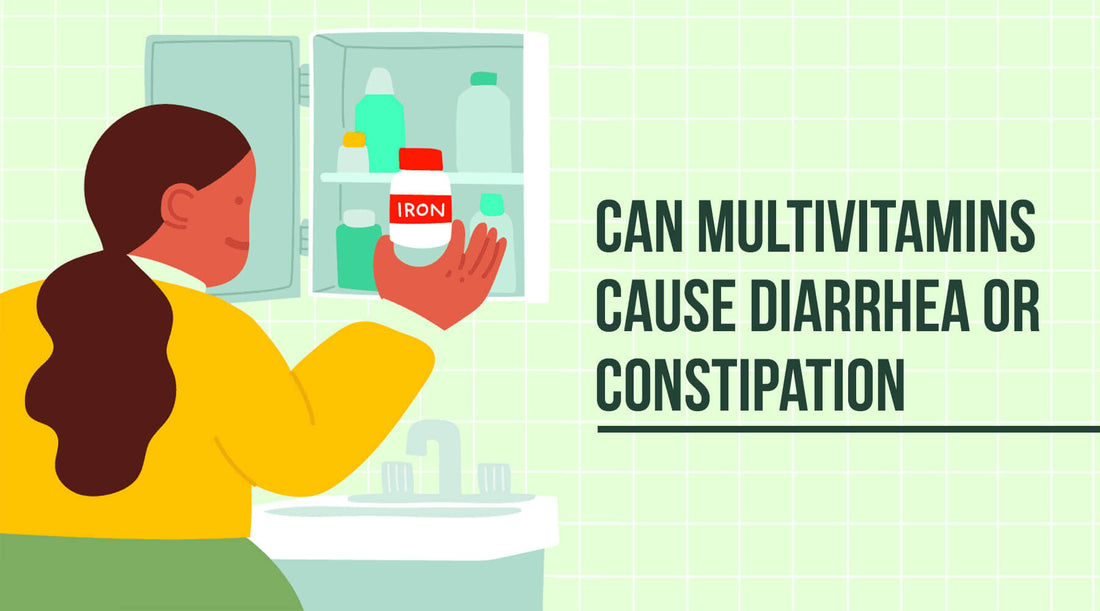People take multivitamins to enhance their general well-being and supplement their diet. However, like other supplements or medications, they have side effects, with diarrhea and constipation being the most common.
Learning why this happens and how to avoid it is highly beneficial for making informed decisions for well-being.
Understanding Multivitamins and Their Effects
Multivitamins are supplements that are a combination of various vitamins and minerals that people essentially need in their diet. They can aid so many functions in the body, ranging from immunity to skin hair, and nail health and maintenance. However, some side effects are usually reported with multivitamin use. The most common of these side effects are gastrointestinal problems, such as diarrhea and constipation.
How Multivitamins Can Cause Diarrhea
1. Excessive Dosages:
Consuming more multivitamins than the set dietary recommendations for such vitamins and minerals can cause diarrhea. For example, vitamin C and magnesium in large amounts have a tendency to stimulate bowel movements. These nutrients are important when taken in small quantities. When consumed in large quantities, they burden the digestive system, and one is likely to experience diarrhea.
2. Sensitivity to Ingredients:
Certain people may experience side effects due to their bodies’ reactions to some of the elements that may be included in the multivitamins. Such elements are artificial colors, preservatives, or fillers. These additives can cause irritation of the gastrointestinal tract, which leads to diarrhea.
3. Iron Content:
Iron supplements should not be taken on an empty stomach, as they can irritate the gastrointestinal tract, leading to diarrhea. Taking them with food can help reduce this side effect.
How Multivitamins Can Cause Constipation
1. Iron Supplements:
Iron causes loose motion in some people. However, more often than not, it is seen to cause constipation. Consumption of iron supplements has a tendency to impair the process of digestion, hence leading to difficulties in bowel movements.
2. Calcium Content:
Calcium is another mineral that can cause constipation in users. Multivitamins with high calcium content slow down bowel movement in the body, thereby causing constipation.
3. Low Fiber Intake:
Fiber is not typically included in regular multivitamin formulations, but it is essential for healthy digestion. If users decide to take multivitamins without adding fiber to their diet, then they are prone to incidents of constipation.
Preventing Gastrointestinal Issues with Multivitamins
With proper care, it is possible to avoid gastrointestinal problems caused by the consumption of multivitamins. Here are five simple things to keep in mind when taking multivitamins and supplements:
- Follow recommended dosages
- Choose quality supplements
- Take with food
- Stay hydrated
- Monitor your body’s response
Patients often experience side effects such as diarrhea and constipation from multivitamins. These issues commonly arise as a result of sensitivity or allergy to certain ingredients contained in the product. Thus, it is essential to adhere to the dosages recommended by healthcare physicians and as stated on the product’s label. Before beginning to take any new supplements, take the time to understand the contents of the supplement first. It is always wise to make informed decisions.








